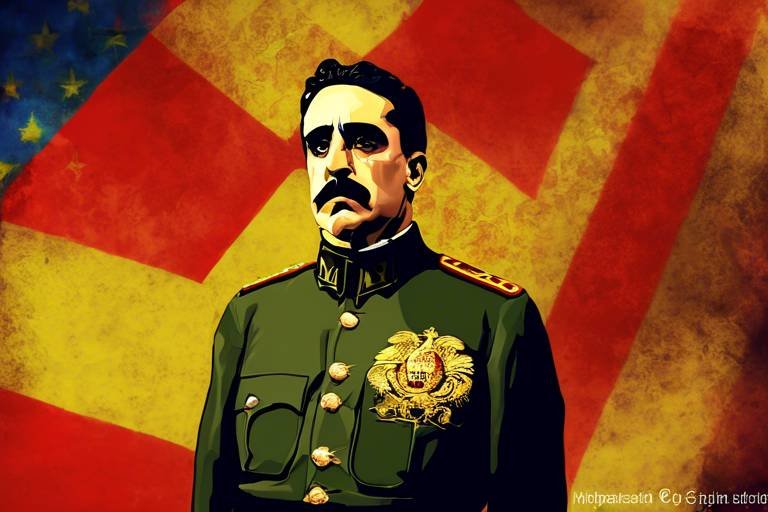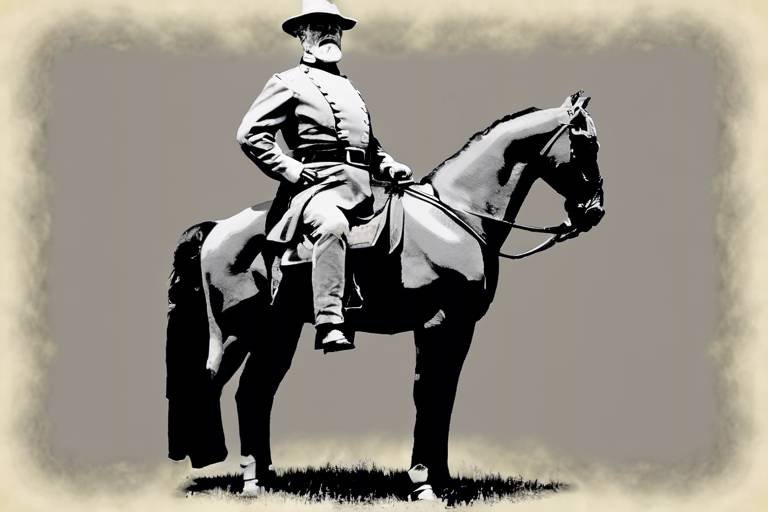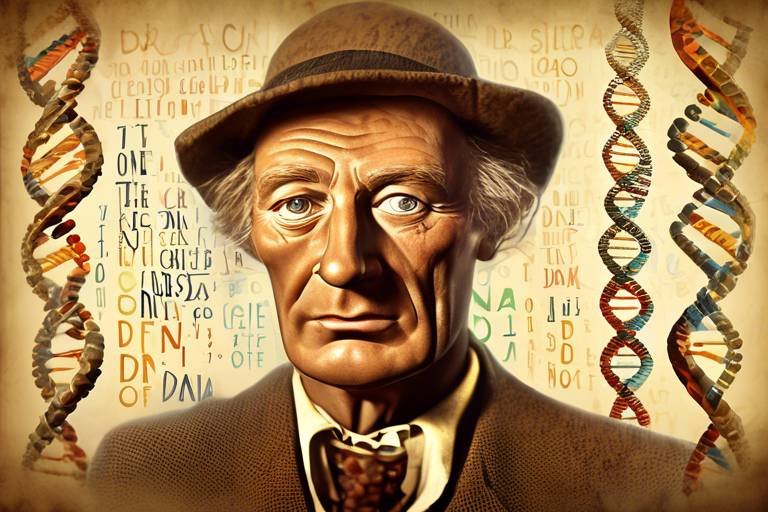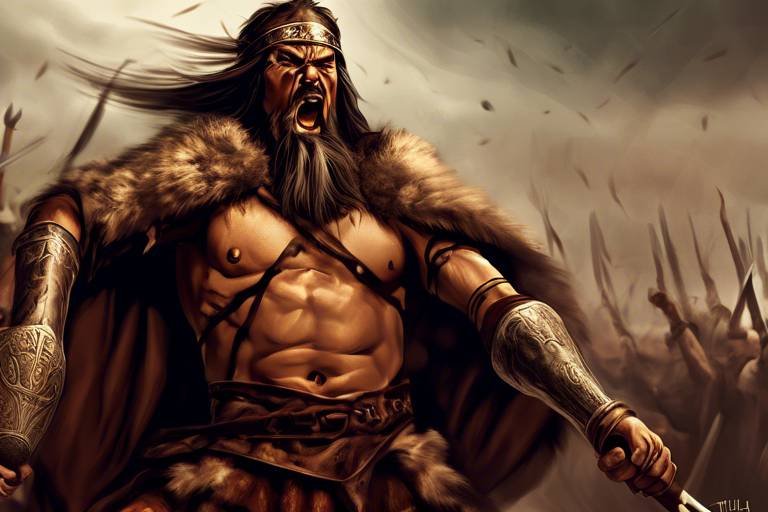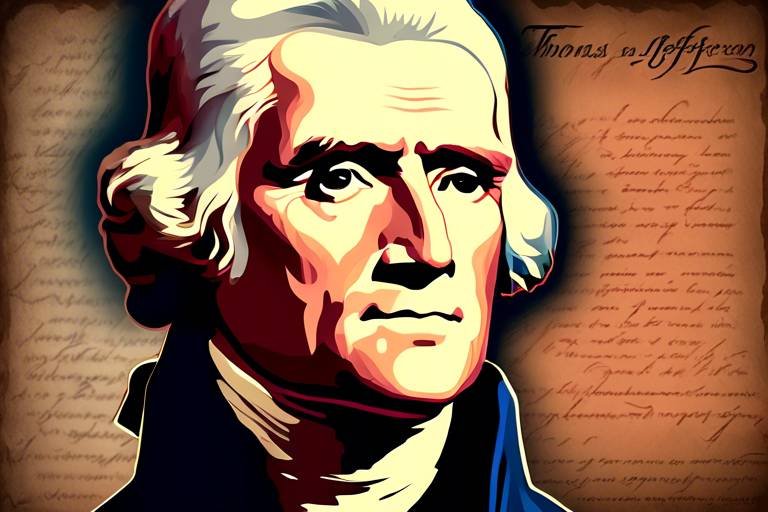Huxley: The Defender of Darwin's Theory
Thomas Henry Huxley, often referred to as "Darwin's Bulldog," was a key figure in championing and safeguarding Charles Darwin's revolutionary theory of evolution during the 19th century. Huxley's unwavering dedication to defending Darwin's ideas against critics and skeptics played a pivotal role in shaping the acceptance and understanding of evolution in the scientific community and beyond.

Early Life and Education
Thomas Henry Huxley was a key figure in the 19th century who played a significant role in defending and popularizing Charles Darwin's theory of evolution. His contributions not only shaped the scientific community but also influenced societal perspectives on evolutionary ideas.
Thomas Henry Huxley, born in 1825, had a humble upbringing in Ealing, England. Despite facing financial constraints, he showed a keen interest in natural sciences from a young age. His early education laid the foundation for his future pursuits in biology and evolutionary theories.
Huxley's passion for the natural world was ignited by the works of renowned scientists and philosophers of his time. His curiosity and thirst for knowledge led him to pursue a career in the field of science, eventually becoming one of the most prominent advocates for Darwin's revolutionary ideas.
Huxley's relationship with Charles Darwin was not merely professional but also personal. As a close friend and supporter of Darwin, Huxley played a crucial role in promoting and defending Darwin's theory of evolution. Their collaboration sparked intellectual debates and paved the way for a new era of scientific exploration.
Throughout his career, Huxley engaged in heated debates and controversies while defending Darwin's theory against staunch critics and opponents. His unwavering commitment to scientific evidence and logical reasoning earned him respect among his peers, solidifying his reputation as a fearless advocate for evolutionary principles.
Huxley's contributions to the fields of biology, paleontology, and comparative anatomy were groundbreaking. His research and discoveries not only expanded our understanding of the natural world but also revolutionized the way we perceive the interconnectedness of all living organisms.
Aside from his academic pursuits, Huxley dedicated significant efforts to popularizing Darwin's theory of evolution among the general public. Through engaging lectures, compelling writings, and public engagements, he bridged the gap between scientific knowledge and public awareness, sparking widespread interest in evolutionary concepts.
Huxley's legacy extends far beyond his scientific achievements. His advocacy for evolutionary biology continues to inspire future generations of scientists and thinkers, shaping the course of scientific inquiry and intellectual discourse.
The ethical and social implications of Huxley's defense of Darwin's theory cannot be understated. His efforts challenged traditional religious beliefs and societal norms, prompting critical reflections on the intersection of science, faith, and morality.

Relationship with Charles Darwin
Thomas Henry Huxley shared a close and influential relationship with Charles Darwin, the renowned naturalist and father of the theory of evolution. Huxley, often referred to as "Darwin's Bulldog," was a staunch supporter of Darwin's revolutionary ideas and played a pivotal role in popularizing and defending the theory of evolution in the scientific community and beyond.
One of the defining aspects of Huxley's relationship with Darwin was their intellectual camaraderie and mutual respect. Despite their differing backgrounds – Darwin being a wealthy Englishman and Huxley a self-educated man of humble origins – the two men shared a deep passion for the natural world and a commitment to advancing scientific knowledge.
Throughout their collaboration, Huxley actively promoted Darwin's theories through his own research, writings, and public engagements. He not only defended Darwin's ideas against critics but also contributed significantly to the development and refinement of evolutionary theory, expanding on Darwin's original concepts.
Moreover, Huxley's role as a vocal advocate for Darwin's theory extended beyond academic circles. He engaged in public debates and discussions, challenging prevailing beliefs and ideologies that contradicted the principles of evolution. Huxley's unwavering support for Darwin paved the way for the wider acceptance of evolutionary theory in the scientific community and society at large.

Debates and Controversies
Explore the life and contributions of Thomas Henry Huxley, a prominent figure in defending and popularizing Charles Darwin's theory of evolution through his work in the 19th century.
Discover Huxley's upbringing, education, and early influences that shaped his interest in natural sciences and evolutionary theories.
Learn about the close relationship between Huxley and Darwin, including their collaborations and Huxley's role in advocating for Darwin's evolutionary ideas.
Examine the debates and controversies Huxley engaged in while defending Darwin's theory against critics and opponents in the scientific community.
Huxley was known for his fierce debates with prominent scientists and theologians who opposed Darwin's theory of evolution. He skillfully defended the concept of natural selection and challenged traditional views on the origin of species. These debates often sparked intense controversies and intellectual clashes, with Huxley standing firm in his support of Darwin's revolutionary ideas.
Explore Huxley's significant contributions to the fields of biology, paleontology, and comparative anatomy, solidifying his legacy as a pioneering scientist.
Understand Huxley's efforts in popularizing Darwin's theory of evolution among the general public through lectures, writings, and public engagements.
Assess the lasting impact of Huxley's work on evolutionary biology and his influence on future generations of scientists and thinkers.
Discuss the ethical and social implications of Huxley's defense of Darwin's theory, including its impact on religious beliefs and societal norms.

Scientific Achievements
Thomas Henry Huxley, known as "Darwin's Bulldog," made significant scientific achievements that solidified his reputation as a pioneering scientist in the 19th century. Huxley's contributions span various fields, including biology, paleontology, and comparative anatomy, shaping the foundation of evolutionary biology.
One of Huxley's notable scientific achievements was his work in comparative anatomy, where he conducted detailed studies on the anatomical structures of different species. Through his meticulous examinations, Huxley provided crucial insights into the evolutionary relationships between various organisms, supporting Darwin's theory of evolution through common descent.
In the field of paleontology, Huxley made groundbreaking discoveries that further bolstered the evidence for evolution. His studies on fossil remains of ancient species helped elucidate the evolutionary history of life on Earth, showcasing the gradual changes and adaptations that occurred over millions of years.
Furthermore, Huxley's research in biology revolutionized the understanding of the natural world. By dissecting and analyzing diverse organisms, he uncovered fundamental principles of biological diversity and adaptation, laying the groundwork for modern evolutionary studies.
Throughout his career, Huxley's scientific achievements not only expanded the frontiers of knowledge but also inspired future generations of scientists to continue exploring the mysteries of life and evolution. His meticulous research and unwavering dedication to scientific inquiry have left an indelible mark on the field of biology and evolutionary studies.

Popularizing Evolution
During his lifetime, Thomas Henry Huxley played a pivotal role in popularizing Charles Darwin's revolutionary theory of evolution. Huxley was not content with merely defending Darwin's ideas within academic circles; he sought to bring the concept of evolution to the masses. Through a combination of engaging lectures, compelling writings, and public engagements, Huxley worked tirelessly to make the complex theory accessible and understandable to a wider audience.
Imagine Huxley standing in front of a captivated audience, using vivid analogies and metaphors to explain the intricate workings of natural selection and the interconnectedness of all living beings. His passion for the subject was infectious, drawing people from all walks of life to listen to his enlightening discussions on the origins of species and the mechanisms of evolution.
One of Huxley's most significant contributions to popularizing evolution was his ability to bridge the gap between the scientific community and the general public. He understood the importance of clear communication and sought to dispel misconceptions and myths surrounding Darwin's theory. By breaking down complex scientific concepts into digestible pieces, Huxley made evolution not only comprehensible but also fascinating to those outside the scientific realm.
Moreover, Huxley's efforts in popularizing evolution extended beyond traditional academic settings. He actively engaged with the public through various means, including writing articles for popular magazines and newspapers, participating in public debates, and organizing educational events. By bringing the discussion of evolution into the public sphere, Huxley sparked curiosity and inspired critical thinking among individuals of all backgrounds.
Through his dedication to popularizing Darwin's theory of evolution, Huxley left a lasting impact on how the general public perceives and understands the natural world. His ability to communicate complex ideas in a clear and engaging manner continues to influence science communication to this day, emphasizing the importance of making scientific knowledge accessible and relevant to society as a whole.

Legacy and Influence
Thomas Henry Huxley's legacy and influence in the field of evolutionary biology are profound and enduring. Known as "Darwin's Bulldog," Huxley played a crucial role in championing Charles Darwin's revolutionary theory of evolution. His tireless advocacy and groundbreaking contributions have left an indelible mark on the scientific community and beyond.
One of the key aspects of Huxley's legacy is his unwavering commitment to advancing the principles of Darwinian evolution. By vigorously defending and promoting Darwin's ideas, Huxley helped shape the course of modern biology and our understanding of the natural world. His intellectual rigor and persuasive arguments laid the foundation for the widespread acceptance of evolutionary theory.
Furthermore, Huxley's influence extended beyond the realm of science. His engagement with the public through lectures and writings served to popularize evolutionary concepts among a broader audience. By making complex scientific ideas accessible and engaging, Huxley sparked interest and curiosity in the theory of evolution among people from all walks of life.
Moreover, Huxley's ethical and social implications of Darwin's theory sparked debates that continue to resonate today. His defense of evolution challenged entrenched religious beliefs and societal norms, provoking discussions on the intersection of science, faith, and morality. Huxley's courage in confronting these sensitive issues paved the way for a more nuanced understanding of the relationship between science and society.

Ethical and Social Implications
Thomas Henry Huxley's defense of Charles Darwin's theory of evolution had profound ethical and social implications that reverberated through Victorian society and beyond. By challenging prevailing religious beliefs that contradicted Darwin's ideas, Huxley sparked debates about the compatibility of science and faith, igniting a firestorm of controversy. His staunch advocacy for evolutionary theory raised questions about the origins of life, the nature of humanity, and our place in the natural world.
One of the key ethical implications of Huxley's defense of Darwin's theory was the clash with traditional religious views, particularly the idea of divine creation. Huxley's promotion of evolution as a natural process based on scientific evidence clashed with the biblical narrative of creation, leading to tensions between science and religion. This conflict forced society to grapple with the concept of evolution as a secular explanation for the diversity of life on Earth, challenging deeply held beliefs about the origins of humanity.
Moreover, Huxley's advocacy for Darwin's theory had significant social implications, influencing how people viewed themselves and their relationship to the natural world. By popularizing evolutionary ideas, Huxley helped shift societal attitudes towards a more secular and scientific understanding of human existence. This shift had far-reaching effects on education, politics, and culture, shaping the way future generations would approach questions of morality, ethics, and the interconnectedness of all living beings.
Furthermore, Huxley's defense of Darwin's theory raised important questions about the role of science in shaping ethical frameworks and guiding social progress. His insistence on empirical evidence and rational inquiry as the basis for understanding the natural world challenged prevailing dogmas and superstitions, paving the way for a more enlightened and evidence-based approach to knowledge. Huxley's legacy as a defender of Darwin's theory continues to inspire scientists and thinkers to uphold the principles of reason, critical thinking, and intellectual honesty in the pursuit of truth.
Frequently Asked Questions
- What were Thomas Henry Huxley's major contributions to evolutionary biology?
Thomas Henry Huxley made significant contributions to the fields of biology, paleontology, and comparative anatomy. He played a crucial role in defending and popularizing Charles Darwin's theory of evolution, solidifying his legacy as a pioneering scientist in the 19th century.
- How did Huxley support Charles Darwin's evolutionary ideas?
Huxley had a close relationship with Charles Darwin and actively advocated for Darwin's evolutionary theories. He engaged in debates and controversies, defending Darwin's theory against critics in the scientific community and working to popularize the concept of evolution among the general public through lectures and writings.
- What was the ethical and social impact of Huxley's defense of Darwin's theory?
Huxley's defense of Darwin's theory had significant ethical and social implications, challenging traditional religious beliefs and societal norms. His efforts sparked debates on the relationship between science and religion, reshaping perspectives on evolution and its implications for human understanding of the natural world.








